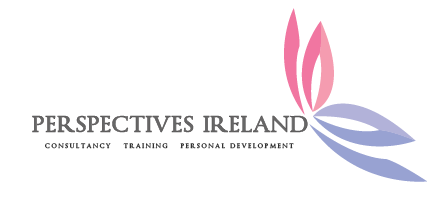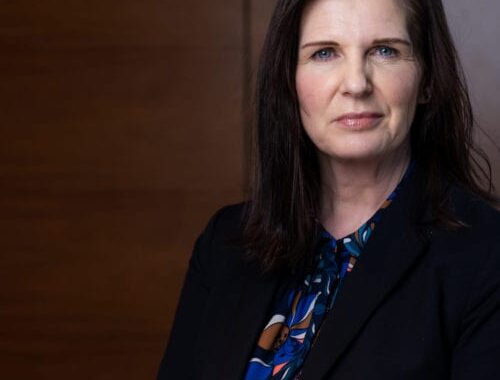
How To Navigate Conflict in Relationships
Piece featured in: Irish Times and Stellar Magazine
Do you struggle to communicate your needs with loved ones? Do you avoid conflict at all costs? Do you find yourself in situations of conflict that feel out of control?
If you answered yes to any of the above, you are not alone.
So, the question now is how can you navigate conflict in a healthy way?
Conflict has a place in all Relationships
Conflict has to have a place for any relationship to work and thrive, but we want you to give it the right place in there:
- The first message is that conflict is a good and necessary way of investing in relationships
- The second message is that conflict has to happen but has to be handled carefully. Otherwise, it won’t work as an investment in a relationship, it will only serve to harm that relationship and the people involved
- And we want to show you how to know the difference (conflict as an investment versus conflict as a weapon)
What we cover here does not apply only to intimate relationships, it applies equally to all relationships.
Defining Conflict
The word “conflict” has strong established connotations of negative and aggressive, and can be associated with being out of control. But this is not actually consistent with the definition of conflict.
Conflict is defined as “an active disagreement between people who have opposing opinions or principles”. So, conflict is essentially just a disagreement where there are conflicting views.
But in couples therapy and in conflict management, we see so much more than this. We see added (sometimes overwhelming) emotion. So, in practice, we see the detail of the issue combined with (heated up by) the emotional reaction to the issue. Indeed, many times the emotions dominate the discussion and the detail of the disagreement sits further behind. So, this is our working definition of conflict when it becomes unhealthy.
Unhealthy Conflict = Issue + Emotion
On the other hand, if you keep the detail of the issue separate from the emotional reaction to the issue, then the conflict is a lot more manageable. So, this is our working definition of conflict when it is healthy.
Healthy Conflict = Issue Only (Keep emotion separate)
Now, we’re not at all saying that you shouldn’t have emotions about disagreements or that you shouldn’t express these emotions. But what we are saying is that you should handle and express the disagreement or conflict in one way, and handle and express the emotion in another way, and try to keep the two as separate as possible.
Unmet Needs in Relationships
What you have probably noticed in any conflicts you have had, is that your emotions around it are very strong and in that sense they are totally valid.
But, let’s think about what’s really valid about them. On the one hand, this may be an issue that is really important to you and really meaningful in your life and that’s why your emotions around it are so strong.
But on the other hand (and what we often see) is that this strong emotional reaction is not about that issue, but is emotional overflow from other needs that are not being met. For example, if you struggle to be visible or to be heard or understood, this will naturally overflow into conflicts. But the emotions in that case aren’t about that conflict, they are about you. In this case, that conflict has become the wrong channel for those needs and emotions. They’re not wrong at all, they’re just in the wrong place.
Unhealthy Ways to Approach Conflict
As part of unmet needs and other aspects of who we are, we each have different styles that influence the way we approach or avoid conflict. There are 2 key styles and some subgroups.
- Are you conflict-avoidant?
- Do you minimise every possible issue and say “it’s all fine really” when you know deep down it’s not?
- Are you a martyr who feels you have to, or should, carry the issue and the silence all by yourself?
- Do you give people the silent treatment and then explode?
- Are you a people pleaser who is afraid of rocking the boat and risking any disapproval from others?
- Are you a conflict seeker?
- Do you always feel like you have to prove a point or be right about something, or feel you can’t be wrong?
- Does emotionally laden conflict feel like the only way you get listened to?
These are individual styles that surround conflict and dictate whether you are more likely to approach or avoid it. It is important to fully recognise your style or the style of your relationship before you deal with any specific conflict.
When to Talk about It: 9 Steps
We guide our clients to use the steps below to guide them on when to begin a conversation and open up a conflict.
Never engage in conflict in the heat of the moment or when your stress levels are high (such as tiredness or hunger) and never let any one detail (no matter how much it bothers you) or any person (no matter how much you love them) to draw you helplessly or unexpectedly into a conflict. So, the golden rule is: All conflicts should be planned!
Step 1
Try to avoid engaging in conflict in the heat of the moment, where there will be reactivity and impulsivity. In other words, don’t talk about the issue while you feel heated, angry or upset.
Step 2
Pause, breathe!
Step 3
Write down the issue.
Step 4
Write down your emotional reaction to the issue.
Step 5
Write down any assumptions you might be making about the other person’s position (e.g. their view on the issue, their feelings etc.).
Step 6
Think about what you want to achieve from the conflict and have the beginnings of an outcome in mind.
Step 7
Have a plan of engagement. Think about the day, time and place for the discussion. Avoid conflict when you’re tired, stressed or even hungry.
Step 8
If you can, talk about the issue with someone else first. This is not to get their advice or to confirm whether or not it is a conflict, but simply to get your point straight in your mind and hear the words out loud.
Step 9
If opening up the conflict is likely to make the other party resistant to even talking, tell them that talking through this disagreement is important to you, that the relationship is important to you and that you would be willing for them to have some ownership over the discussion.
The Benefits of Healthy Conflict
Conflict is more than resolving disagreements, conflict has benefits that really help you and your relationship to thrive. So, how does conflict help us thrive? Well, if there was no conflict, it would almost certainly mean that someone somewhere was compromising a lot. So, what does conflict actually add to us?
- Conflicts are a vehicle for authentic expression, they allow you to state your position on an issue, they allow you to be potentially different from other people and to be respected for having a different view of something.
- Conflicts help us to be clear about our views and principles, by putting things outside, instead of keeping them on the inside. So, they help us to grow into our own skin.
- Conflicts help our loved ones get to know us and learn to respect what is important to us. So, it gives others guidance and feedback, so our connections and relationships with them can grow.
At Perspectives Ireland, we also offer a self-paced online course on how to navigate conflict in relationships: https://www.perspectivesireland.com/training-events/navigating-conflict/
We hope you can take something valuable that you can apply to your life from this blogpost.









